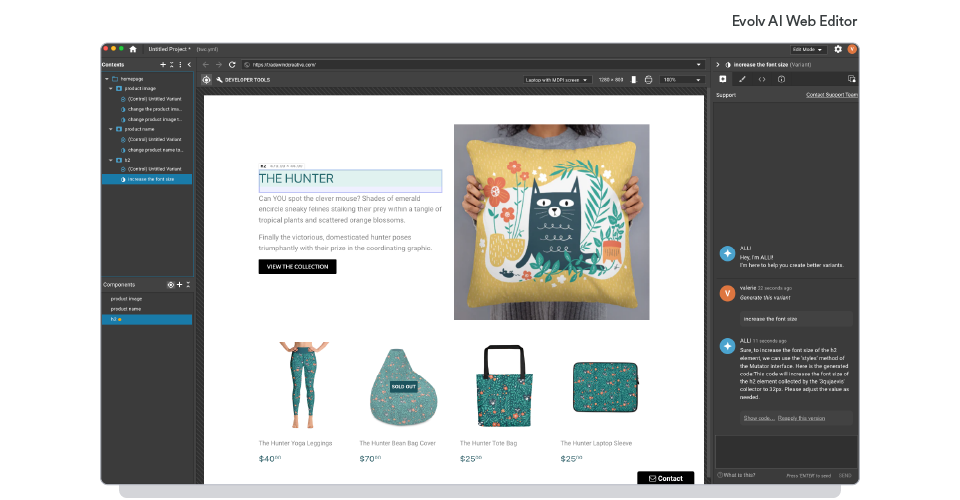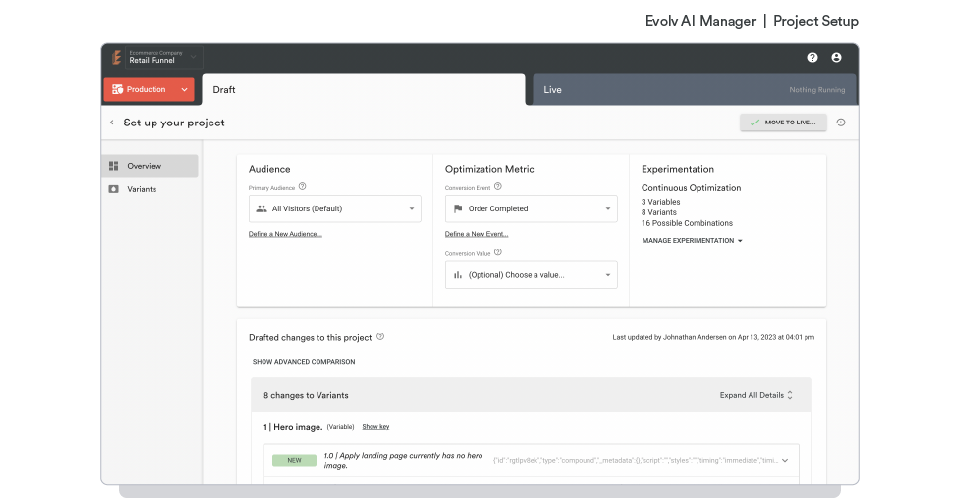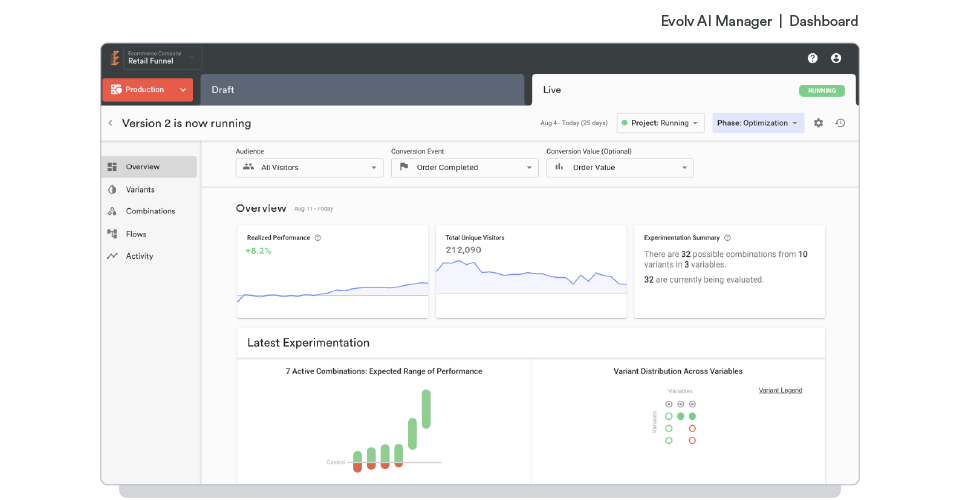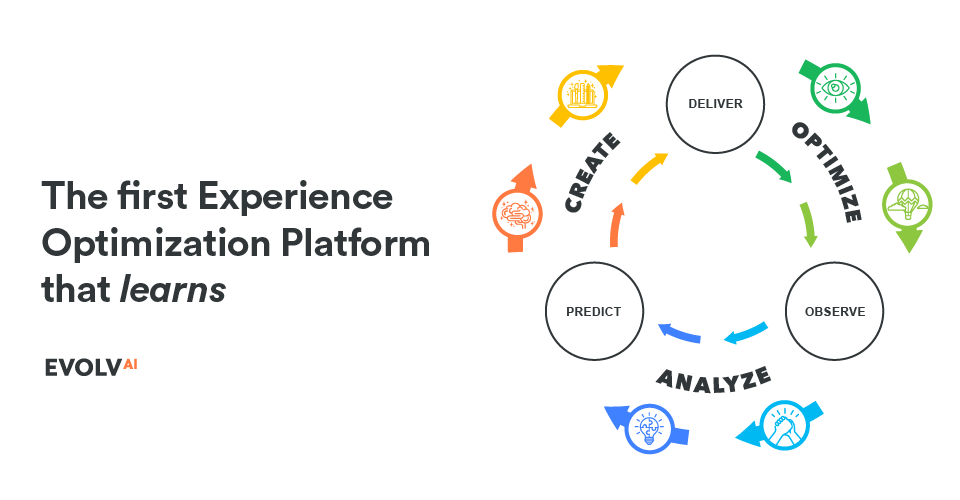When you think of design, you may think of something aesthetically pleasing. But good design is much more than that. It’s a functional experience that gives the end-user what they need both simply and beautifully. To reach that level of elegance, your team needs to deeply understand what the definition of beauty is to your end-user.
That’s where design thinking comes into play.
Design thinking empowers organizations to put the consumer’s needs above all else. The human-centered process works by placing empathy and creativity at its core to solve problems while empowering organizations to keep up with a rapidly changing environment.
The design thinking framework includes six stages:
- Empathize: Begin your design thinking process by gaining intelligence on your consumer’s needs, preferences, and pain points. While collecting these insights across research, interviews, and other tactics, it’s essential to make observations in a non-judgemental way – staving off preconceived notions or biases that can impair your ability to hear what your customers really want.
- Define: Based on the observations you’ve collected during the empathy phase, you can start to discern the problems your customers face most often.
- Ideate: Compile a list of ideas and solutions to solve the problems you’ve identified in the definition phase. The ideation stage of design thinking should be collaborative and creative; ideate without constraints. At the end of the process, select a handful of ideas or hypotheses to test.
- Prototype: Turn your ideas into practice with a functional prototype. The end deliverable might look something like a new version of a product landing page, or a modified check out experience - easy to generate and iterate upon once it’s in production.
- Test: Put your prototypes in front of your end-users. Keep in mind, design thinking is an iterative process. Use the insights you collect from real user reactions to challenge your assumptions. Have you created a winning experience, or do you have room for improvement? As you see room to grow, revisit the earlier phases of the framework and continue experimenting.
- Implement: This sixth step comes into play when your experiments have been dubbed winners. At this phase, you’ll hard code the *permanent change into your digital assets. (*Technically semi-permanent because you’ll likely experiment on the same assets down the road, as your customer expectations and the digital landscape continues to evolve.)
By prioritizing user needs, embracing innovation, and iteratively improving the customer experience, businesses can create online platforms that genuinely resonate with their audience and drive sustainable growth.
Design Thinking Meets Active Learning
Evolv AI’s active learning platform follows the design thinking framework to make experimentation more effective. Through a human-in-the-loop partnership with our AI, organizations can:
- Ideate and prioritize: In active learning, the ideate and prioritize phase equals the empathy through ideation phases of design thinking. As you learn more about your end-users, what solutions can you provide?
- Build: Prototype your hypothesis in Evolv AI’s Web Editor. You can use our generative AI capabilities to expedite the building and ideation phases of design thinking by generating and deploying new versions of copy, imagery, and design on the fly, amplifying creativity and maximizing resources.

- Test: Use Evolv AI Manager to automate the delivery of your experiences. Deploying experiments with Evolv AI is easy, we offer both server-side and client-side integrations for implementation. Want to read more about how to implement Evolv AI? Read more here.

- Target: Evolv AI’s technology automates the allocation of experiences to deliver the best experience to the right audience for a dynamic, personalized customer experience in real-time.
- Gather: Real-time insights will stream directly into your Evolv AI portal as your experiments run. Evolv AI’s API-first approach makes connecting your data to and from Evolv AI easy. Our pre-built integrations include the most commonly used ad/campaign managers, CDPs, DXPs, data warehouses, analytics platforms, commerce platforms, and more.
- Analyze: The Evolv AI platform analyzes the performance of your tests, it pairs historical insights and causal inference across all user data to connect users to the best possible experiences in real-time while providing a dashboard of insights to learn from, equipping you with more knowledge as you begin the cycle of design thinking over again.

- Ideate and prioritize: This second loop of ideation and prioritization comes with recommendations from Evolv AI’s machine. Evolv AI’s predictive AI watches what’s happening across your experiments, variants, and user traffic, categorizes the changes made within the system, generalizes them, and generates new ideas for further optimization. Recommendations are force ranked, starting with those measured to provide the highest impact and lowest level of effort for your consideration.

As the system learns more from your audience, active learning helps to augment your customer experience processes, both by offering recommendations to complement and expedite the human-led ideation process and via its generative AI capabilities that helps your team bring experiments to life faster.
Want to learn more about Evolv AI’s active learning process? Book a time to speak with one of our experts today.





